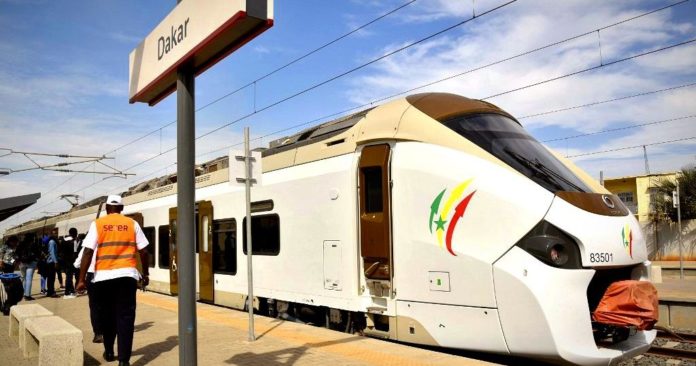By AFP
On Monday, December 27 after five years of work and at a cost of more than 1 billion U.S. dollars, Senegal’s capital city will finally welcome a new commuter railway line.
Politicians are lining up to extol the benefits of slashing journey times and decongesting Dakar once the gleaming TER regional express trains start to roll.
“I know that in Dakar, there has been controversy about the TER being behind schedule,” TER General Manager Frederic Bardenet explained. But this is not the case, we are almost breaking world records in terms of construction, in terms of completion of this project.”
The state-owned railway line is a key part of President Macky Sall’s plan to overhaul the nation’s infrastructure by 2035.
The new transport system is aimed at reducing journey times and also decongesting the city.
Traveling at up 160 kilometers per hour, the trains will ply the 36-kilometer route between Dakar and the new city of Diamniadio in about 20 minutes.
Tickets for the Dakar-Diamniadio stretch will cost 1,500 CFA francs (2.5 U.S dollars) in second class, and 2,500 francs (4.3 USD) in first.
The trains will carry 115,000 people per day, saving passengers hours otherwise spent in vehicular congestion.
SETER will use 15 four-car dual-mode trains with diesel and electric power, built by French company Alstom.
The TER stations will link up with express buses, which will operate on reserved lanes on a toll highway that has been operating for the last decade.
But thousands of residents claim they have not been properly compensated for homes and businesses that were demolished to make way for the project.
“We plan to block the start of the TER on the day of the inauguration to demand satisfaction for our grievances,” said Ibrahima Cisse, who leads a group of some 16,000 people who say they are owed money.
Many are also furious that the rehousing they were promised has not yet been completed.
Yatma Dieye of Apix told AFP that “98.8 percent of people affected by the project have been compensated.”
“Payments began in February 2017. Everything was transparent and done according to international standards,” he said.
The government says that almost everyone who is owed compensation has received it but accepts that some resettlements have not yet happened.




